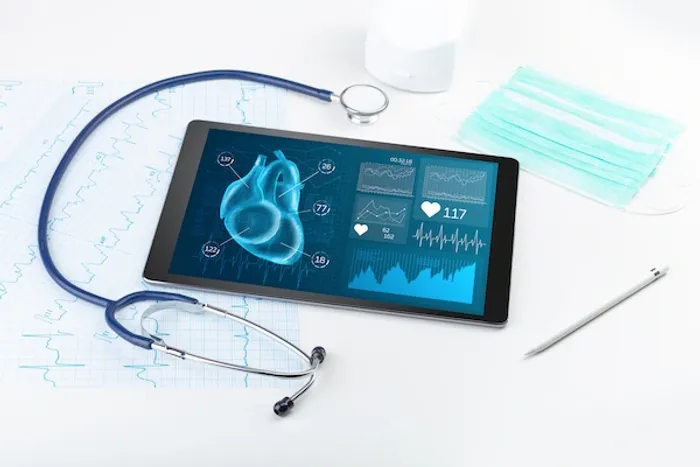Minimum Pulse Rate Explained
Know all about minimum pulse rate, its causes, symptoms, diagnosis, treatment options and tips on how to manage it.

Written by Dr. Siri Nallapu
Reviewed by Dr. Shaik Abdul Kalam MD (Physician)
Last updated on 13th Jan, 2026

Introduction
Your heart rate, or pulse, is a vital sign that indicates how many times your heart beats per minute (bpm). While most people focus on a high pulse rate, having a low pulse rate (bradycardia) can also be a concern. In this article, we’ll explain what a minimum pulse rate is, its causes, symptoms, and when you should seek medical help.
What Is a Minimum Pulse Rate?
A minimum pulse rate refers to the lowest number of heartbeats per minute that is still considered normal. For most healthy adults, a resting heart rate between 60 and 100 bpm is normal. However, some people, especially athletes, may have a resting heart rate below 60 bpm without any issues.
A pulse rate below 60 bpm is called bradycardia. While it can be harmless in some cases, it may also indicate an underlying health problem if accompanied by symptoms like dizziness or fatigue.
What Causes a Low Pulse Rate?
Several factors can contribute to a low pulse rate, including:
1. Natural Causes
The natural causes include:
Athletic Fitness: Well-trained athletes often have lower heart rates (40-60 bpm) because their hearts pump blood more efficiently.
Age: Older adults may naturally have slower heart rates.
2. Medical Conditions
Heart Diseases: Conditions like heart block, sick sinus syndrome, or heart attack can slow the heart rate.
Hypothyroidism (Underactive Thyroid): Low thyroid hormone levels can reduce heart rate.
Electrolyte Imbalance: Low potassium or calcium levels can affect heart rhythm.
3. Medications
Beta-blockers, calcium channel blockers, and some anti-arrhythmic drugs can lower the heart rate.
Consult Specialist Cardiologist for pulse rate related health issues.
Symptoms of a Dangerously Low Pulse Rate
A slightly low pulse rate without symptoms may not be a problem. However, if your heart rate is too low, your body may not get enough oxygen, leading to:
Dizziness or lightheadedness
Fatigue and weakness
Shortness of breath
Fainting (syncope)
Chest pain
Confusion or memory problems
If you experience these symptoms, seek medical attention immediately.
When Should You Worry?
A low pulse rate is concerning if:
It drops below 40 bpm without being an athlete.
You experience fainting, chest pain, or severe fatigue.
It happens suddenly without any known cause.
In such cases, consult a doctor to rule out serious conditions.
How Is a Low Pulse Rate Diagnosed?
Doctors may use pulse rate for diagnosis, including:
Electrocardiogram (ECG/EKG) – Measures electrical activity of the heart.
Holter Monitor – A portable ECG device worn for 24-48 hours.
Blood Tests – To check thyroid function, electrolyte levels, or signs of infection.
Treatment Options
Treatment depends on the cause:
If medications are causing it, your doctor may adjust the dose.
For heart-related issues, a pacemaker may be needed to regulate the heart rate.
Lifestyle changes like reducing caffeine, managing stress, and staying hydrated can help.
Tips for Managing a Low Pulse Rate
Stay Active: Light exercises like walking can help maintain heart health.
Eat a Balanced Diet: Include potassium-rich foods (bananas, spinach) and omega-3 fatty acids (fish, nuts).
Monitor Your Pulse: Check your heart rate regularly if you have a history of bradycardia.
Avoid Excessive Alcohol & Smoking: These can worsen heart rhythm problems.
When to See a Doctor?
See your doctor immediately when you observe the following symptoms:
A sudden drop in heart rate
Frequent dizziness or fainting
Unexplained fatigue
Final Thoughts
A low pulse rate isn’t always dangerous, but it’s important to pay attention to symptoms. If you feel unwell or notice a sudden change in your heart rate, fainting, chest pain, or severe fatigue, then don’t ignore it; just seek medical advice. The treatment option depends on the root cause of the low pulse rate.
Consult Specialist Cardiologist for pulse rate related health issues.
Consult Specialist Cardiologist for pulse rate related health issues.

Dr. Tripti Deb
Cardiologist
40 Years • MBBS, MD, DM, FACC, FESC
Hyderabad
Apollo Hospitals Jubilee Hills, Hyderabad

Dr. Zulkarnain
General Physician
2 Years • MBBS, PGDM, FFM
Bengaluru
PRESTIGE SHANTHINIKETAN - SOCIETY CLINIC, Bengaluru

Dr. Haider Shaik.
Cardiologist
5 Years • MBBS, MD (Pulmonology) DrNB (Cardiology)
Guntur
Kalam chest and multi-speciality clinic, Guntur

Dr. E Prabhakar Sastry
General Physician/ Internal Medicine Specialist
40 Years • MD(Internal Medicine)
Manikonda Jagir
Apollo Clinic, Manikonda, Manikonda Jagir
(150+ Patients)

Dr. Amit. A. Bharadiya
Cardiologist
12 Years • MBBS, MD General Medicine, DNB Cardiology, FSCAI
Maharashtra
Surabhi Hospital, Maharashtra, Maharashtra
(50+ Patients)




